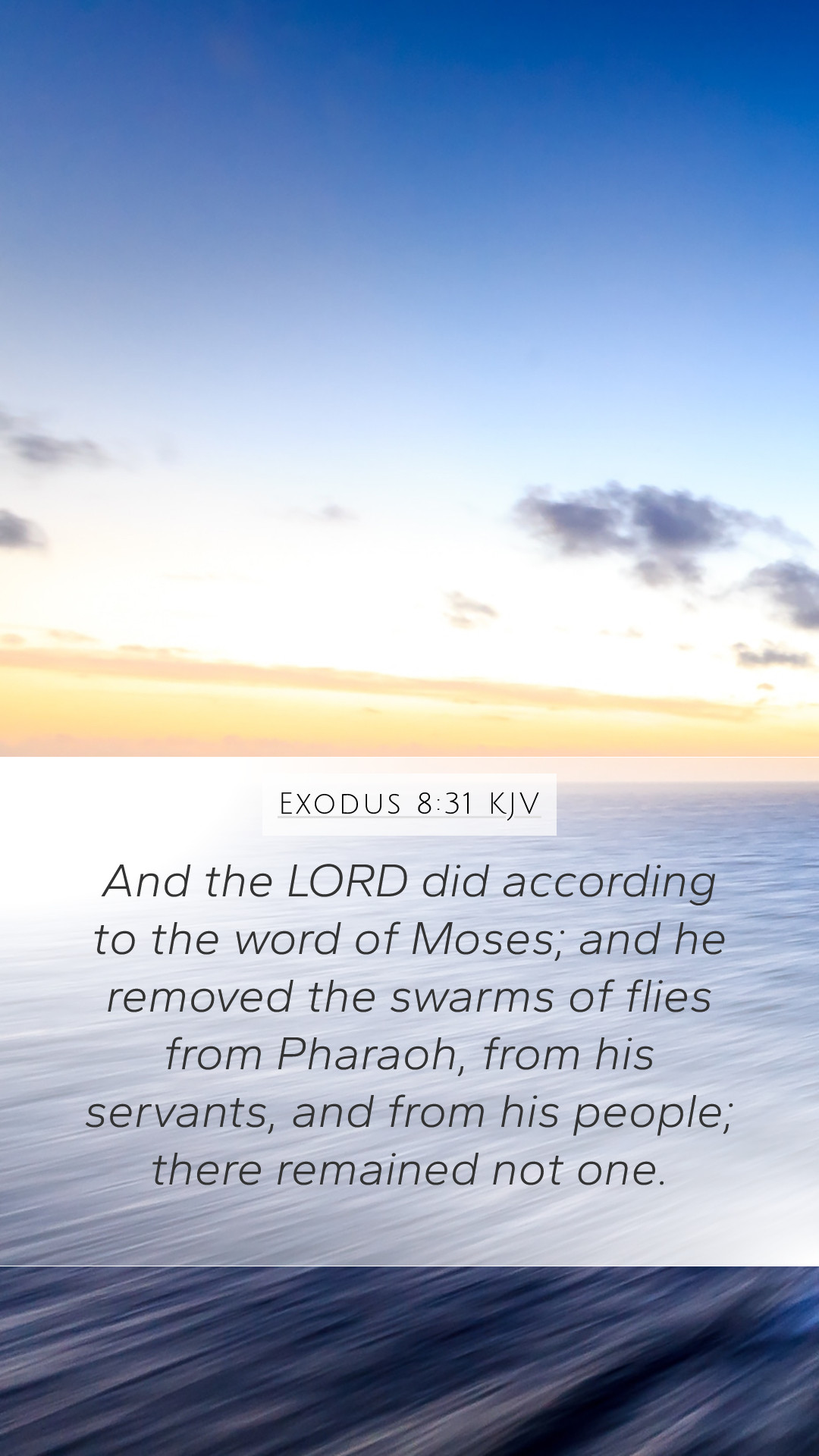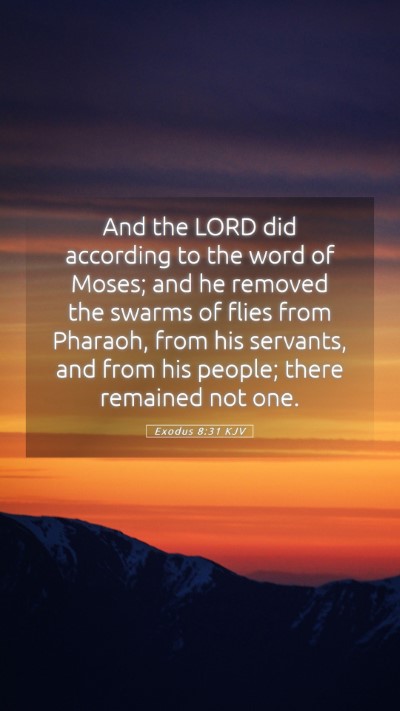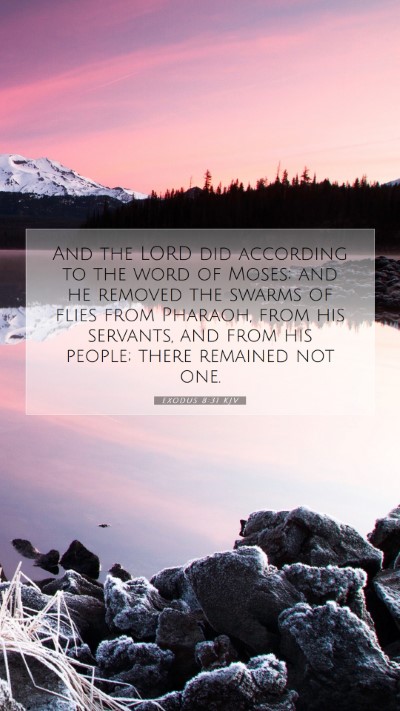Understanding Exodus 8:31
Exodus 8:31 states, "And the Lord did according to the word of Moses; and he removed the swarms of flies from Pharaoh, from his servants, and from his people; there remained not one." This verse captures a significant moment in the biblical narrative where God responds to Moses's plea, demonstrating His power over the natural order and His willingness to intervene in human affairs based on the intercession of His chosen servant.
Meaning and Commentary on Exodus 8:31
To interpret Exodus 8:31, one can consider the insights from various public domain commentaries:
- Matthew Henry: Henry emphasizes the divine sovereignty and the fulfillment of God's word through Moses. This incident exemplifies how God listens to the prayers of His people and acts accordingly. The removal of the swarms of flies is not just a miracle; it is a demonstration of God's willingness to alleviate suffering when petitioned by His servant.
- Albert Barnes: Barnes points out that this verse highlights God's power and control over creation. The swarms of flies were a direct judgment upon Pharaoh and his people, symbolizing impurity and disorder in their lives. Their removal signifies a restoration of order and a sign of God’s mercy even amid judgment.
- Adam Clarke: Clarke provides a detailed exegesis on the significance of the swarms of flies, relating them to the Egyptian gods and the plagues' purpose in demonstrating the impotence of false gods. He emphasizes God's might over the deities that the Egyptians worshipped and illustrates how the plagues served as a wake-up call to recognize the true God.
Broader Biblical Context
The context of this verse is crucial for understanding its implications. The plagues serve as both judgment upon Egypt for the oppression of Israel and a means for God to demonstrate His sovereignty to His people. The removal of the flies represents a temporary reprieve, showcasing God's power while simultaneously highlighting Pharaoh's hardened heart.
Related Cross References
- Exodus 7:14-25 - The first plague, turning water into blood, sets the stage for God's judgment.
- Exodus 8:1 - God sends Moses to Pharaoh with a warning, demonstrating His purpose and intention.
- Exodus 8:15 - The hardening of Pharaoh's heart after the relief from the plagues signifies his rejection of God's authority.
- Exodus 10:1-20 - Subsequent plagues that highlight the increasing severity of God's judgments.
Applications for Bible Study
The richness of Exodus 8:31 allows for profound applications in personal Bible study and group discussions:
- Consider how this verse illustrates the importance of prayer and intercession in our lives.
- Reflect on how God answers prayers, even in seemingly desperate situations.
- Discuss the nature of God's mercy and judgment, and how they can coexist in our understanding of faith.
Conclusion
In Exodus 8:31, we find a powerful testament to God's responsiveness and authority. Through careful biblical exegesis and commentary analysis, we can gain a deeper understanding of this verse's significance. For those seeking to enhance their Bible study, this passage encourages an examination of God's actions, the nature of our prayers, and the ongoing relevance of these events to contemporary faith practices.
For further study, consider utilizing various Bible study resources such as commentaries, study guides, and group discussions to explore the rich layers of meaning within the text.


